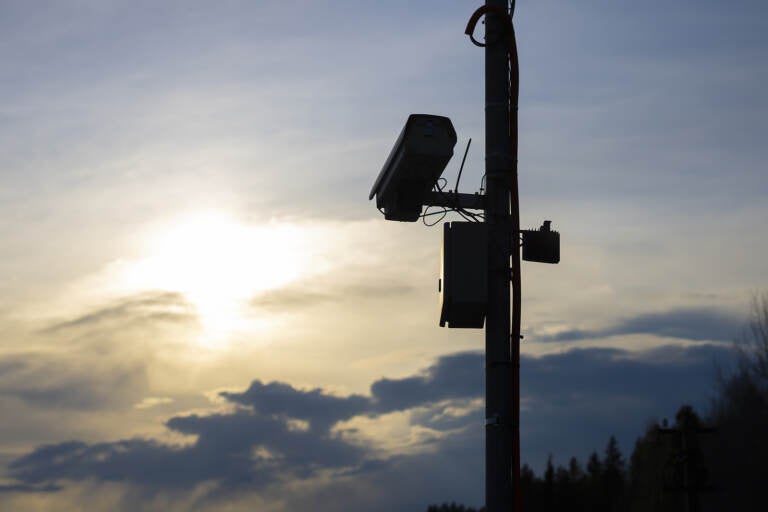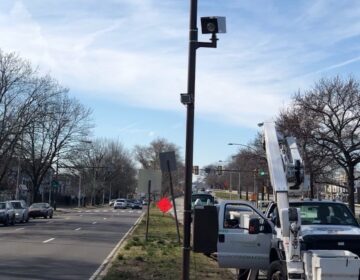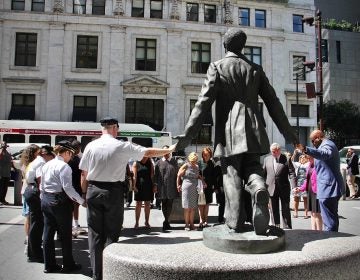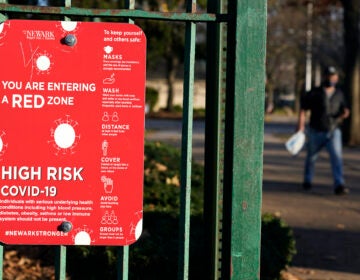Speed, red-light cameras could reduce racial disparity in police stops, study says
A recent study found that national support for automated traffic cameras increased when participants viewed camera implementation through the lens of racial justice.

(Sonluna / BigStock)
During the first six months of 2021, New Jersey State Police conducted more than 232,000 traffic stops, according to a State Police traffic stop database.
State Police traffic stops in New Jersey involving Black drivers constituted 23% of stops, despite Black people making up only 12% of the population.
Moreover, the database reported that 43% of arrests made during traffic stops involved Black drivers.
New research suggests implementing traffic cameras may help reduce this disparity, and make roads safer in general.
A Rutgers University study released in June found that national support for automated traffic cameras increased when participants viewed camera implementation through the lens of racial justice.
Kelcie Ralph, a safety researcher whose work identifies traffic misconceptions and solutions to traffic safety issues, authored the report.
Her team conducted an experiment with 1,468 U.S. adults using two different descriptions of a traffic camera program. Some participants read that the program was designed to reduce racial bias and minimize interactions with police, while others read a shorter description that was narrowly focused on how the cameras would work.
Ralph said the racial justice message “increased support for cameras, 71% versus 57%,” and that some study participants had direct negative experiences with police in the past.
“[They said] this would fundamentally improve my life, or the life of my children, and many shared really haunting stories of being profiled, and just the stress and agony that caused,” Ralph said.
The New Jersey Institute For Social Justice, an advocacy group that supports racial justice initiatives, weighed in on the study by addressing concerns related to civil liberties.
“Given the disproportionate number of interactions Black New Jerseyans have with police, we welcome innovative strategies to minimize those interactions. But any implementation of traffic cameras must take into account and address any associated civil liberties issues,” said Andrea McChristian, law & policy director at the New Jersey Institute for Social Justice.”
The New Jersey Policy Perspective, a statewide think tank, also voiced concern about how implementation could negatively impact communities of color.
“It’s an interesting proposal and one worth considering if it will reduce interactions with law enforcement. At the same time, there could be unintended consequences depending on how something like this is implemented, especially if traffic cameras are disproportionately installed in Black and brown communities. The last thing we’d want to do is set up a system that targets people of color with fines and fees,” said Marleina Ubel, a policy analyst at the New Jersey Policy Perspective.
Ralph suggested three criteria to help ensure that the implementation of traffic cameras is successful:
- Camera locations should be selected based solely on crash statistics to ensure cameras aren’t disproportionately placed in low-income neighborhoods or communities of color.
- The revenue from camera programs should be reinvested into road infrastructure and traffic safety projects, and not used to fill police or city budgets.
- There must be new legal frameworks used to punish repeat offenders.
“The most unsafe roadways in our communities tend to be in Black and brown communities in low-income communities,” Ralph said. “And that’s because of decades of disinvestment. And so now, if we put our cameras in those locations, it is the places that are most unsafe. But it’s also now those drivers who are most likely to be getting a ticket. And so it’s really tricky to disentangle.”
Despite Ralph’s findings, support for traffic cameras amongst policymakers is rare.
There are official, or so-called de facto, speed camera bans in 32 states, including New Jersey.
In June, the New Jersey state Senate unanimously passed a bill that would prohibit the state from disclosing New Jersey driver’s license holders’ personal information to other states seeking to issue speed camera or red light camera citations.

Get daily updates from WHYY News!
WHYY is your source for fact-based, in-depth journalism and information. As a nonprofit organization, we rely on financial support from readers like you. Please give today.






